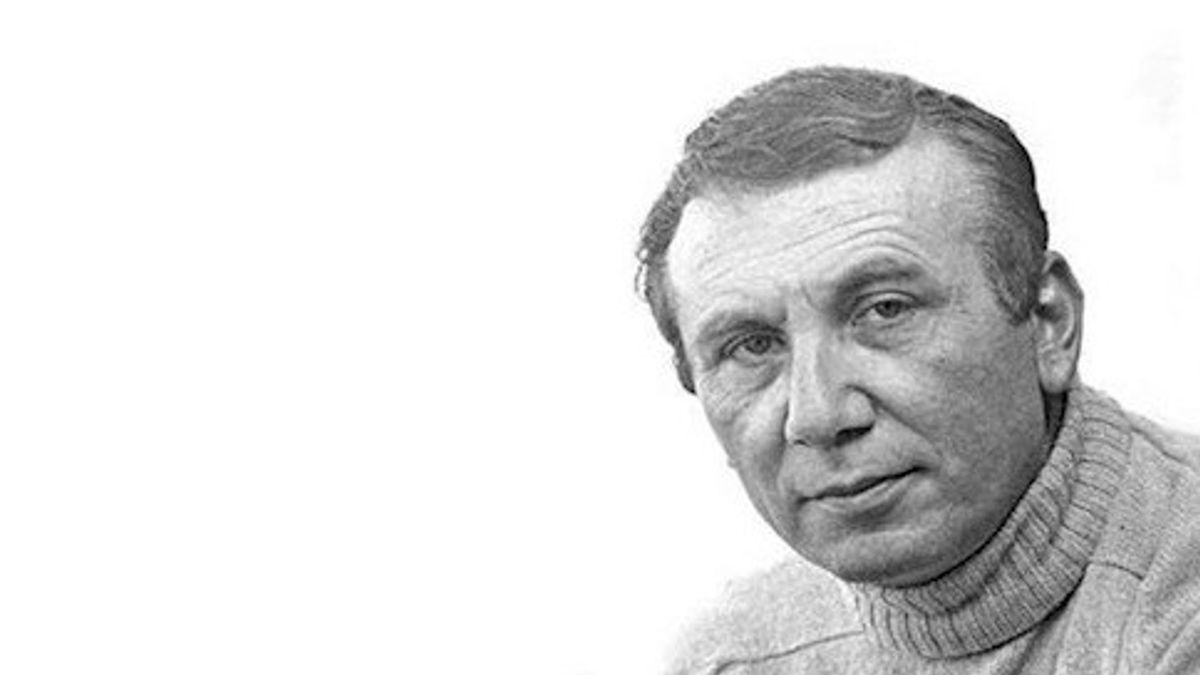JAKARTA - On March 21, 1999, World Poetry Day was established by the United Nations Educational Scientific Cultural Organization (UNESCO). What is the history of World Poetry Day, which commemorates the birth of the Syrian poet Nizar Qabbani?
Quoted from the official UNESCO website, the commemoration of World Poetry Day was agreed upon by a resolution of the 30th General Conference in Paris. World Poetry Day is commemorated to promote language diversity through poetic expression.
UNESCO, through World Poetry Day also recognizes the uniqueness of poetry in capturing the creative spirit and human thought. In addition, World Poetry Day is also commemorated to help artists and publishers maintain the image of poetry so that it is not considered outdated art.
"The commemoration of World Poetry Day is also intended to encourage a return to the oral tradition of reading poetry, promote the teaching of poetry, restore dialogue between poetry and other arts such as theater, dance, music and painting," he wrote.
The birthday of the Damascus poet Nizar QabbaniNizar Qabbani was born on March 21, 1923. He lives in the area of Mundzinah Syahm and grew up in a traditional ancient Damascus family. In his diary, Nizar Qabbani mentions his poetry skills as a legacy from his father, Taufiq Qabbani.
This has been hereditary, said Nizar Qabbani. Quoted from the Berdikari Book website, his father also inherited a talent for literary arts from his grandfather, Ahmad Abu Khalil Al-Qabbani, who was a famous artist and playwright at that time.
Apart from poetry, young Nizar Qabbani also studied calligraphy and painting. Intensely enough, until the peak he published the poetry book Al-Rasm bi Al-Kalimat, which in Indonesian means "Painting with Words".
Before he really drifted off as a poet, Nizar Qabbani had a passion for music. In his early days as a poet, Niza Qabbani memorized many of the poems of Umar bin Abi Rabi'ah, Jamil Batsinah, Tharafah bin Al-'Abd and Qais bin Al-Mulawwah.
In 1939, Nizar Qabbani sailed for Rome. This was the first time Nizar Qabbani gave birth to poetry verses. The beauty of the waves and their encounters with fish are an inspiration. Nizariats - fans of Nizar's works - believe August 15, 1939 as the early history of the birth of Nizar Qabbani's poetry.
Get to know Nizar Qabbani more closelyNizar Qabbani's poetry book is Qalat LiAl-Samra (The Brown Woman Says To Me). He published the poetry book with private funds in the midst of his busy life studying law at Damascus University.
Graduated from Damascus University, Nizar Qabbani entered the foreign service (diplomacy). He was stationed in Cairo, London, Ankara, Peking, as well as Madrid. In 1966 Nizar Qabbani quit to then set up his own publication in Beirut.
The life of Nizar Qabbani in the following days was filled with suffering and misfortune. His sister committed suicide after refusing an arranged marriage. The tragedy was followed by the death of his son who was studying medicine in Egypt.
After that, his wife, Bilqis died. The Iraqi woman was killed in the middle of a civil war that broke out in 1981 in Lebanon.
The Poems of Nizar QabbaniNizar Qabbani's poetry was widely criticized at that time. Nizar Qabbani is considered too vulgar. Many are worried that Nizar Qabbani's poetry will be a threat to Islamic values. Nizar Qabbani's books and poetry are also banned in many countries in the Middle East, especially Saudi Arabia.
Nizar Qabbani is also known as a critical poet. He has a strong interest in politics in the Arab world. In many of his works, Nizar Qabbani has frequently attacked Middle Eastern leaders for discriminatory policies.
After the death of his wife, Bilqis, Nizar Qabbani moved to London. He stayed there until he died on April 30, 1998 due to a heart attack. In total, about 15 years Nizar Qabbani lived in London.
While being treated at the London Hospital, Nizar Qabbani wrote a waisat to have his body buried in Damascus. Nizar Qabbani said, "Rahim who taught me poetry, who taught me to be creative, who taught me the script of jasmine flowers.".
Here are some of Nizar Qabbani's most recognizable works:
- Qâlat Li Al-Samrâ '(1944), Thufulat Nahd (1948)
- Samia (1949)
- Anti Li (1950)
- Qashâid (1956)
- Habibati (1961)
- Al-Rasm Bi Al-Kalimât (1966)
- Yaumiyât Imraah Lâ Mubâliyah (1968)
- Qashâid Mutawahhisyah (1970)
- Kitâb Al-Hubb (1970).
* Read other information about LITERATURE or read other interesting writings from Putri Ainur Islam.
TODAY'S HISTORY OthersThe English, Chinese, Japanese, Arabic, and French versions are automatically generated by the AI. So there may still be inaccuracies in translating, please always see Indonesian as our main language. (system supported by DigitalSiber.id)













